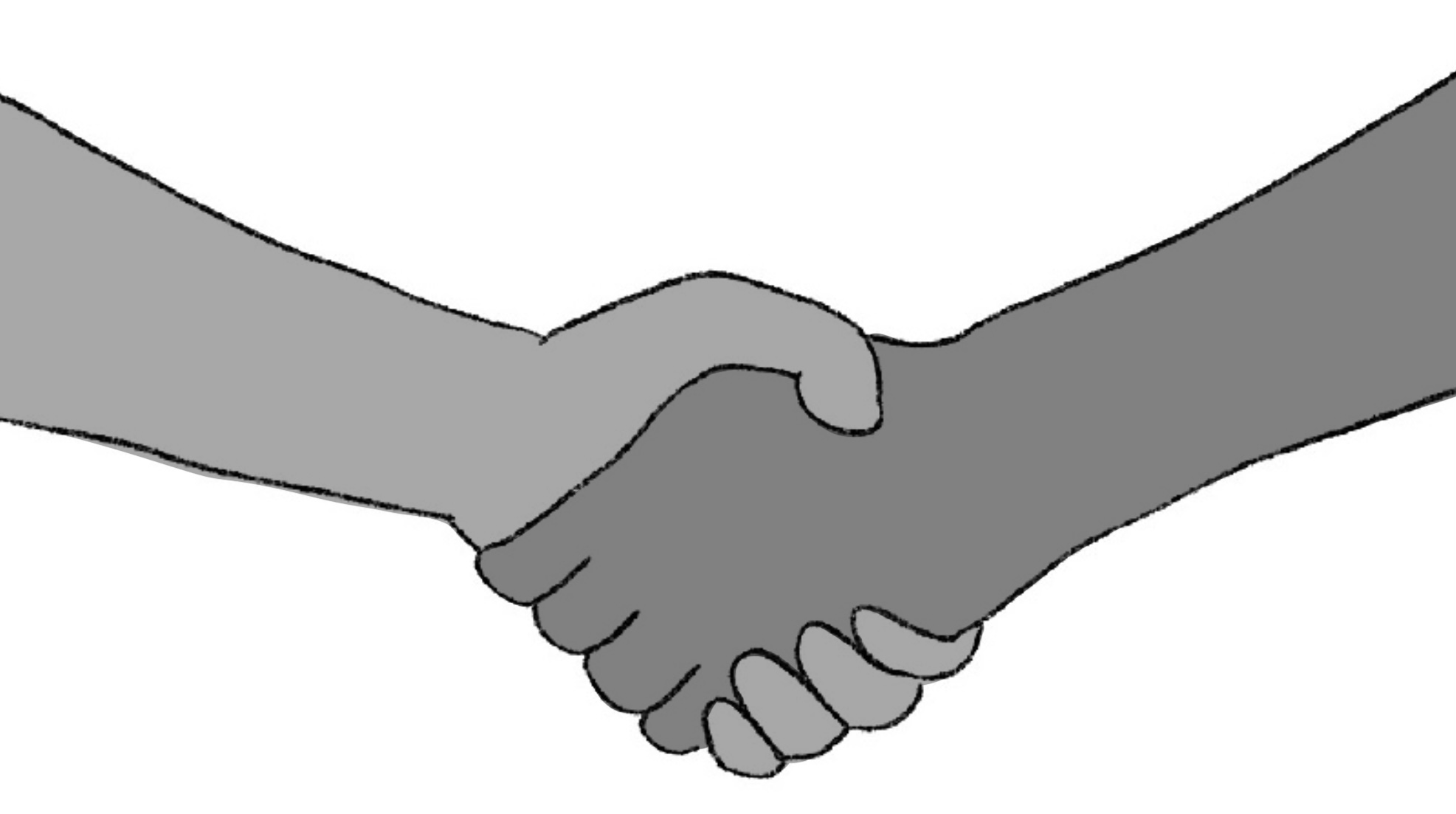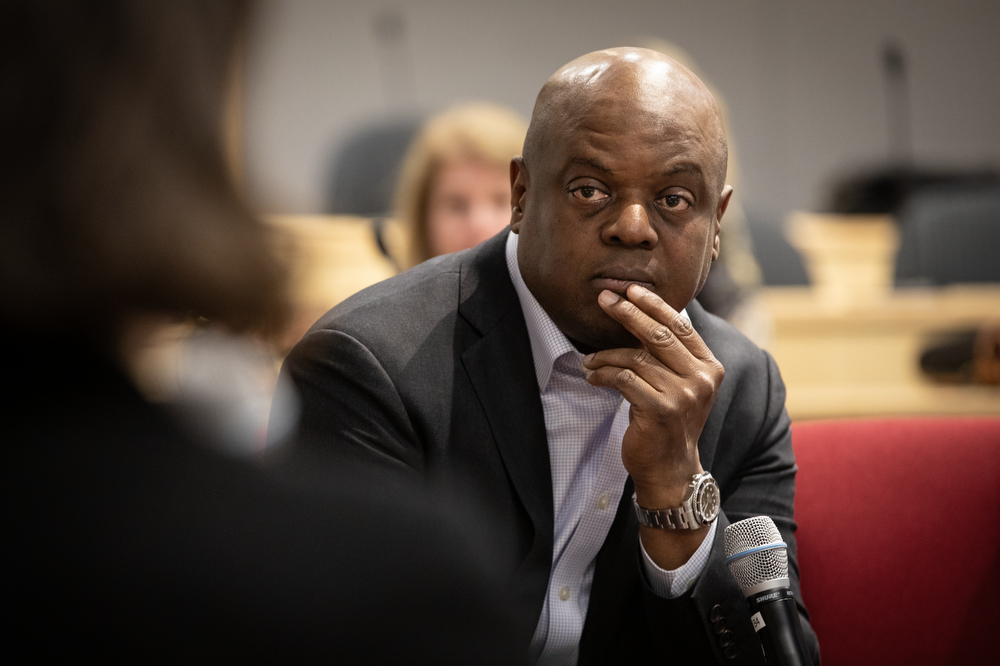Confronting discrimination

As part of their reporting, journalists may come across various forms of discrimination such as racism, sexism, homophobia and ableism. This can happen, either because they are assigned to cover these issues or because they experience discrimination from their sources, editors and readers. Contending with discrimination can have a profound impact on journalists' mental health.
"Something that I learned early on was the value of representation. As a man of color, my experiences are different."
Bedel Saget, multimedia editor and visual journalist at the New York Times

Saget recalled being critical of his own colleague and department leadership for its reporting on Richard Williams and tennis champion Serena Williams' decision to boycott the Indian Wells tournament in 2002. He felt it lacked empathy for the mental anguish the Williams's felt when she was booed by the crowd. "I immediately took offense to this because I saw, I understood what happened."
Making sure that journalists of color feel comfortable and heard is essential for professional and student newsrooms. Oluwatoyin Kupoluyi, a journalism and political science major, is the vice-president of Black World, a 50-year-old, student-run publication at Stony Brook University that seeks to amplify the voices of Black and brown students.
As part of Black World's special Black History Month Edition in Spring 2024, Kupoluyi recalled her excitement at finding Black and brown student organizations as a freshman, and highlighted the importance of Black-owned brands and companies for their communities.

"As a Black student . . . finding my place on campus felt like a daunting task. I longed for a sense of belonging, a community where I could connect with others who shared my struggles, my experiences and my dreams."
Oluwatonyin Kupoluyi, class of '26 Stony Brook University
Although she is passionate about her work, Kupoluyi admitted there are struggles that come with juggling so many responsibilities, especially while leading a publication that gives voice to so many underrepresented students. "You have a lot of weight on your back," she said.
It can be especially challenging for journalists to report on forms of discrimination they have encountered on a personal level. Emyle Watkins is a disabled, neurodivergent investigative journalist who leads the Disabilities Desk at WBFO, an NPR-affiliate radio station in Buffalo, New York.
Watkins participated in a panel discussion about disability reporting hosted by The Press Club of Long Island in February 2024, where she explained some of the pressures of her beat.
"If you write about disability a lot, you are going to be encountering stories where you see a lot of hate and discrimination. That can be really heavy and you might relate to some of it."
Emyle Watkins, WBFO, Buffalo, New York
As an example of a story that impacted her, Watkins recalled a piece about a woman who went to a special Olympics fundraiser at a restaurant and could not be seated at an accessible table. "You just think, 'How can this keep happening?'" Watkins said.
Sometimes, hate and discrimination can come from readers. Emily Ladau, an editor at Able News and wheelchair user, has been critical of articles that she calls "inspiration porn."
"These are stories that portray disabled people as an inspiration, but that wouldn't be inspiring if the person wasn't disabled. . . I'm then told that I'm bitter or a complainer or that I should just be grateful that someone in a wheelchair was on TV in the first place."
Emily Ladau, editor, Able News
In these situations, Ladau prefers to focus on the positive impact that her stories may have on other people. She acknowledges she isn't going to reach everyone. For her, if there is one person that she can reach through the stories that she writes and edits, that's more important. "There's somebody else out there who, even if they are not loud in the comments section, may feel seen," she said.
A further problem is that minority journalists can feel isolated within their own media organizations. Yet their editors may call on them to "represent" their communities, assign them to cover stressful situations without adequate preparation or expect them to write about their personal experiences.
Christine Kelley, journalism major, class of '23 at Stony Brook University
Christine Kelley graduated from Stony Brook University last year. As a trans woman, she is concerned that in newsrooms, "There is still this attitude that we may have come a long way in that we actually acknowledge that trans people exist now." But she said that trans people can experience prejudice not only as the subject of stories, but also as reporters. "You're either just the token or they're uncomfortable with you."
Kelley recalled, "I had a colleague, once, who didn't want to write a particular story about the LGBTQ community, turning to me and saying like, 'Hey, you're active in the community, right?'
"It's a complicated issue in terms of, you know, being a bisexual trans journalist who just writes about things. Well, too bad. You have to be the bisexual trans journalist first, you can't just be you."
Christine Kelley, class of '23 at Stony Brook University, associate producer, 13WHAM ABC Rochester
There are several ways in which journalists can mitigate the negative impacts that discrimination coverage can have on their mental health. Chandelis Duster, a reporter with CNN, shared that she sometimes has to distance herself from the stories she is writing.
"If a story is impacting me emotionally, I acknowledge those feelings, step away for a moment to process them and then jump back into it if I'm able."
Chandelis Duster, reporter, CNN's race and equality team
She added that, as a woman of color, stories that directly impact her community can be emotionally and mentally challenging for her.
"One of the ways I cope with covering heavy and sensitive topics is staying focused on the story itself and not allowing my emotions to cloud my journalistic judgment."
See our section on self-care strategies for further information